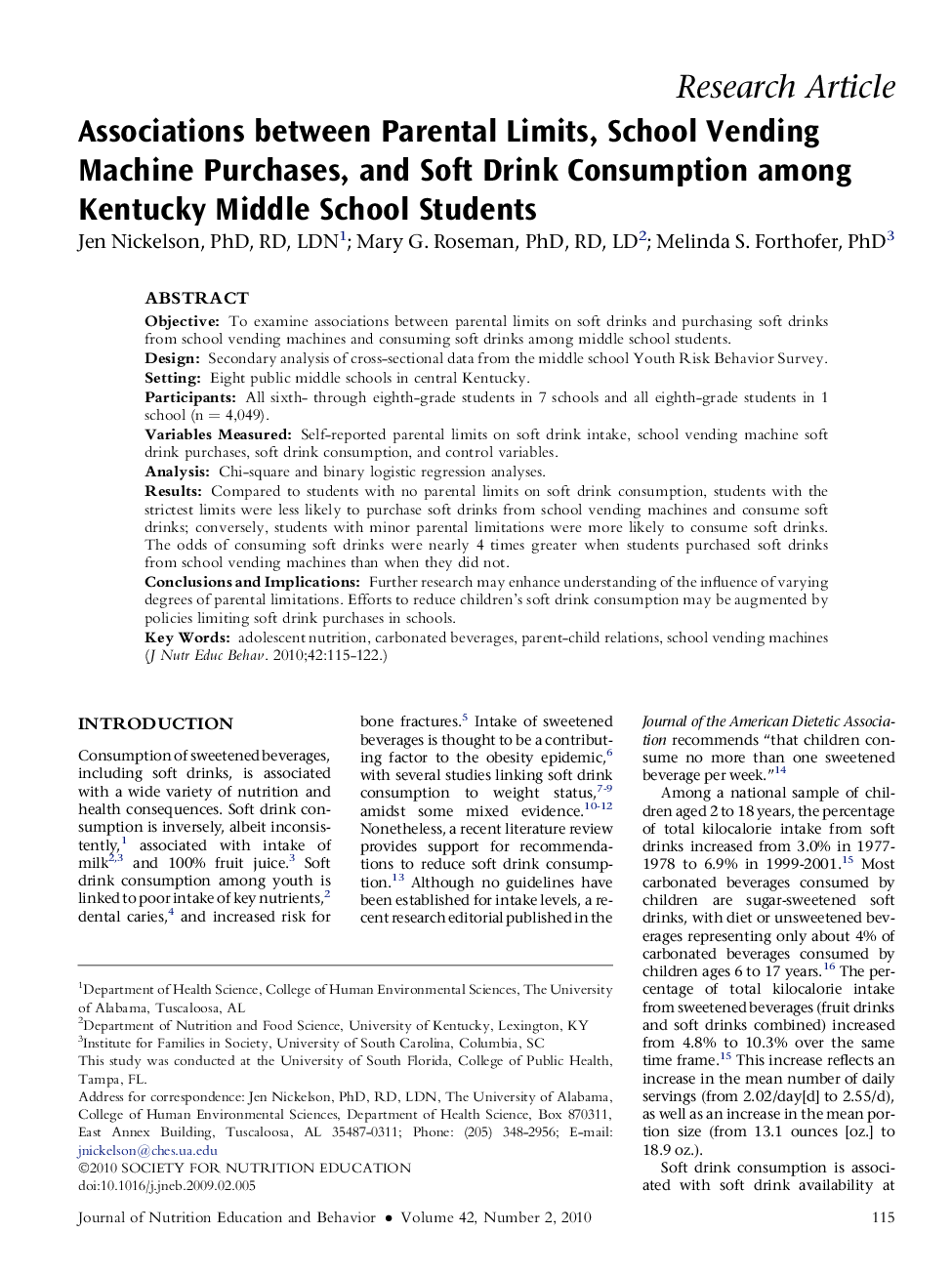| Article ID | Journal | Published Year | Pages | File Type |
|---|---|---|---|---|
| 362877 | Journal of Nutrition Education and Behavior | 2010 | 8 Pages |
ObjectiveTo examine associations between parental limits on soft drinks and purchasing soft drinks from school vending machines and consuming soft drinks among middle school students.DesignSecondary analysis of cross-sectional data from the middle school Youth Risk Behavior Survey.SettingEight public middle schools in central Kentucky.ParticipantsAll sixth- through eighth-grade students in 7 schools and all eighth-grade students in 1 school (n = 4,049).Variables MeasuredSelf-reported parental limits on soft drink intake, school vending machine soft drink purchases, soft drink consumption, and control variables.AnalysisChi-square and binary logistic regression analyses.ResultsCompared to students with no parental limits on soft drink consumption, students with the strictest limits were less likely to purchase soft drinks from school vending machines and consume soft drinks; conversely, students with minor parental limitations were more likely to consume soft drinks. The odds of consuming soft drinks were nearly 4 times greater when students purchased soft drinks from school vending machines than when they did not.Conclusions and ImplicationsFurther research may enhance understanding of the influence of varying degrees of parental limitations. Efforts to reduce children's soft drink consumption may be augmented by policies limiting soft drink purchases in schools.
